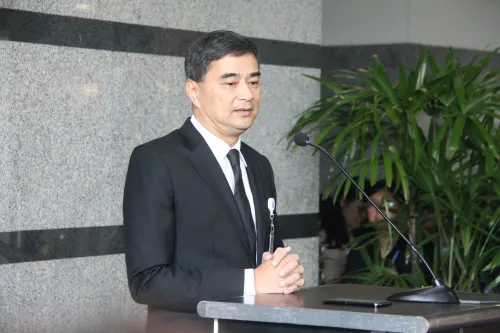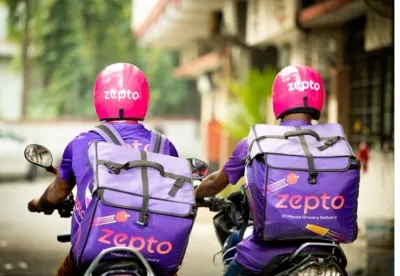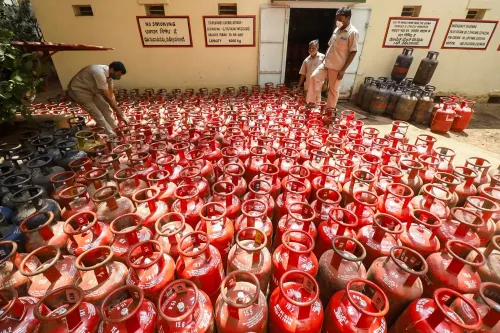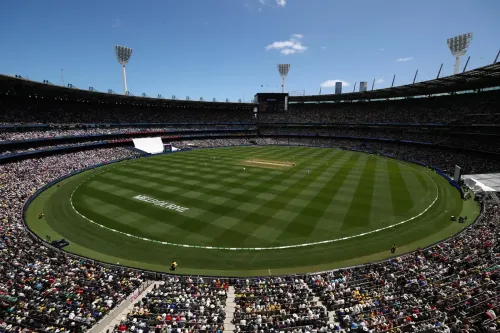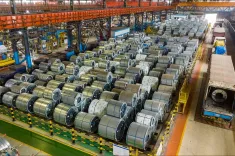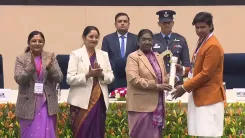What Does Sirsa Say About Rohingyas, Pollution, and AAP’s Allegations?

Key Takeaways
- Multiple initiatives are underway to combat pollution in Delhi.
- Illegal migrants, including Rohingyas and Bangladeshis, are being actively addressed.
- The government is focused on essential services rather than a culture of freebies.
- Sirsa criticizes AAP for spreading misinformation.
- Air conditioner usage is regulated according to national standards.
New Delhi, July 8 (NationPress) In a revealing interview with IANS, Manjinder Singh Sirsa, the Minister for Food & Supplies, Industry, Forest & Environment in Delhi, discussed a variety of critical matters ranging from pollution management and illegal immigration to political accusations and the sustainability of Delhi's welfare programs.
Recognized for his directness, Sirsa didn't hesitate to criticize the Aam Aadmi Party (AAP), championing his government's efforts while addressing controversies involving public figures and infrastructure developments.
Here are the highlights from the exclusive discussion:
IANS: What significant measures is your government implementing to address pollution in Delhi?
Sirsa: We are not taking just one measure; we’ve initiated numerous actions to combat pollution. A key initiative is the elimination of garbage mountains in Delhi. To date, we’ve cleared about 30 percent of these. Out of 200 acres, we’ve reclaimed approximately 35 acres of land, where we’ve planted bamboo. We've set up water sprinklers at various sites, commenced mechanical sweeping of PWD roads, and enforced DPC monitoring for all new constructions. We’re also focused on enhancing the integrity of Delhi’s roads.
IANS: There’s considerable discussion about four-wheelers, but what about two-wheelers and three-wheelers? Are there any measures in place to address the pollution they cause?
Sirsa: Certainly. Pollution assessments should consider actual emissions rather than just vehicle age, whether it’s a two-wheeler or a three-wheeler. Some two-wheelers begin polluting within five years, while some four-wheelers can remain clean for over ten years if used less frequently. The benchmark should focus on pollution levels, not age. We are also introducing electric retrofit kits for old scooters to transform them into electric vehicles, alleviating the need for new purchases.
IANS: Air conditioning units are now recognized as significant contributors to pollution. Is the government contemplating any regulations regarding their usage?
Sirsa: For now, we adhere to the Government of India’s standards concerning the type of gas utilized in air conditioners. Citizens are already mindful of their electricity expenses, which influences their air conditioning usage. It's not as if air conditioners are operated indiscriminately; their use is naturally regulated by cost considerations.
IANS: What is the current number of Bangladeshis and Rohingyas residing in Delhi, and when will actions be taken against them?
Sirsa: Actions against illegal migrants, including Rohingyas and Bangladeshis, are currently underway. They will not be permitted to reside in Delhi under any circumstances. Unlike the previous AAP government that allegedly provided them with leniency, we are resolutely committed to taking action. Our primary concern is the safety of Delhi, regardless of the criticism we may encounter.
IANS: AAP claims your government is targeting Purvanchali settlements. What do you say to that?
Sirsa: That is typical of AAP - lying is their main skill. To join AAP, one must master two things: corruption and deception. They mislead the public with unfounded accusations, but the reality is quite different.
IANS: How do you perceive AAP's victories in places like Ludhiana and Surat?
Sirsa: One individual winning an election is not remarkable. Even lesser-known parties can secure one or two seats. AAP's success in Visavadar or Ludhiana West doesn't hold much significance in the grand scheme. Even in Jammu and Kashmir, AAP had a candidate win - it’s not an extraordinary achievement.
IANS: Is there any proof connecting Arvind Kejriwal to Khalistani figures?
Sirsa: It is well-documented that anti-national factions have supported Kejriwal. Gurpatwant Singh Pannun himself asserted that he donated crores of rupees to Kejriwal. Kejriwal has never denied it or clarified whether he accepted that money. Therefore, no further explanation is needed — Pannun’s own statements suffice.
IANS: Why isn’t Arvind Kejriwal residing in Delhi? Is he afraid of arrest?
Sirsa: Kejriwal cannot operate without power. Since AAP holds authority in Punjab, he is residing there, enjoying the security, vehicle, and helicopter that Punjab offers. He shows no interest in Delhi unless it serves his personal gain. His actions indicate that he is more focused on maintaining power than on public service.
IANS: Delhi CM Rekha Gupta’s bungalow renovation has faced criticism. What are your thoughts?
Sirsa: Why the criticism? That property was formerly part of the LG Secretariat staff quarters. The overall renovation cost is around Rs 50 to 60 lakh - which is trivial compared to what Kejriwal spent. Just the fittings in his restroom cost Rs 50 lakh, and a single curtain in his quarters amounted to Rs 1 crore. In comparison, Rs 50 to 60 lakh is not extravagant.
IANS: Social media posts depict you living in a grand house. How do you respond?
Sirsa: I reside in my private residence. I haven’t even occupied a government bungalow. The reason they target me is to divert attention from the issues concerning Rohingyas and Bangladeshis. I constructed my home with my own earnings - I haven't misappropriated public funds like Kejriwal.
IANS: Saurabh Bharadwaj asserts that his home receives contaminated water. Who is accountable?
Sirsa: He himself is to blame. He has served as a minister for ten years. If he is still experiencing dirty water, it's time for him to exit politics.
IANS: How long will the ‘freebie’ model in Delhi persist? Will your government alter it?
Sirsa: We do not endorse a culture of freebies for its own sake. However, essential services should be accessible to those in need - free water, electricity, and bus rides for women are valuable initiatives. Simultaneously, we are fortifying infrastructure and empowering individuals to become self-sufficient. That is the genuine objective.


